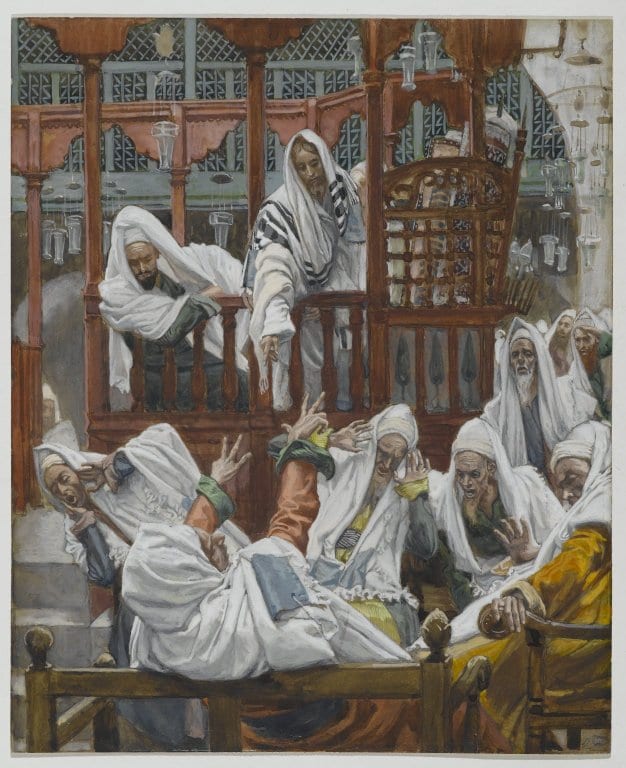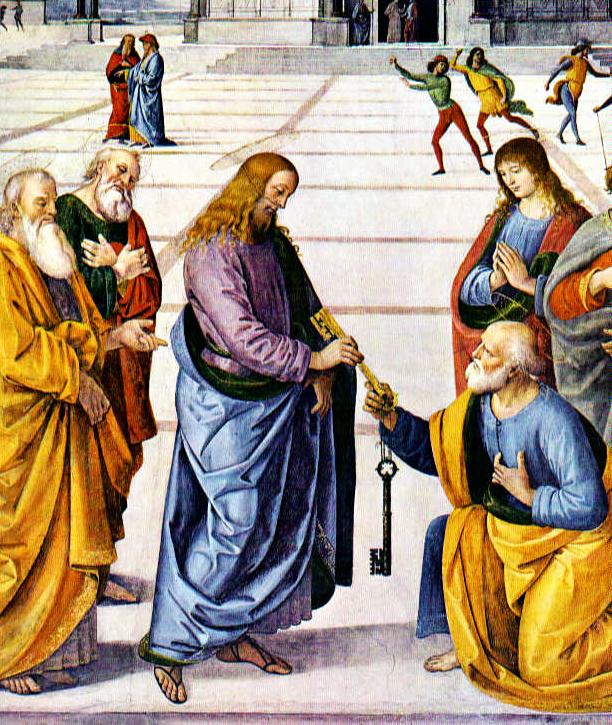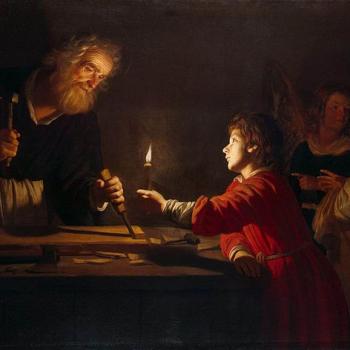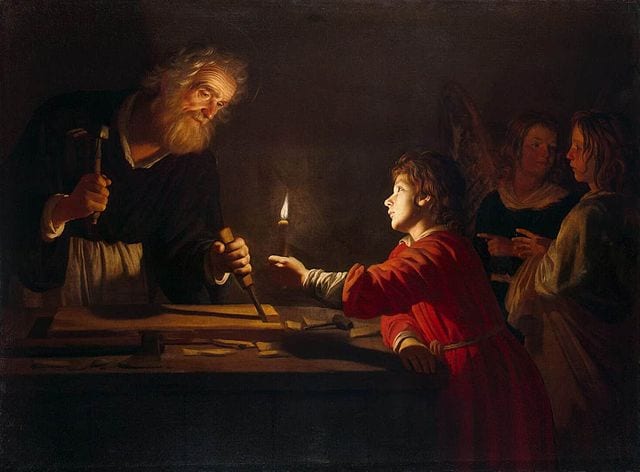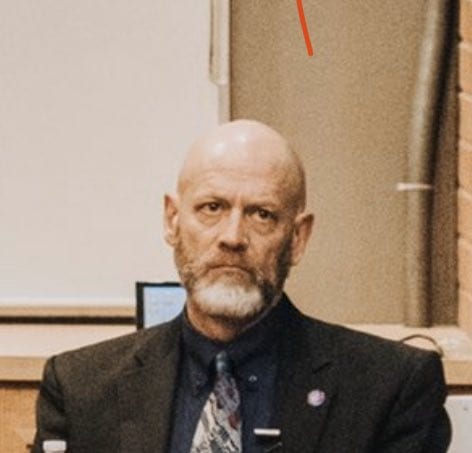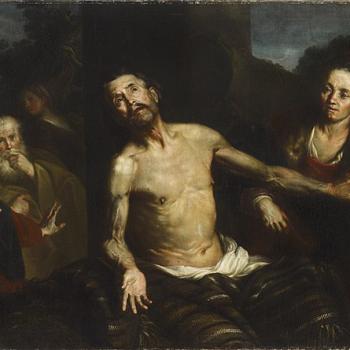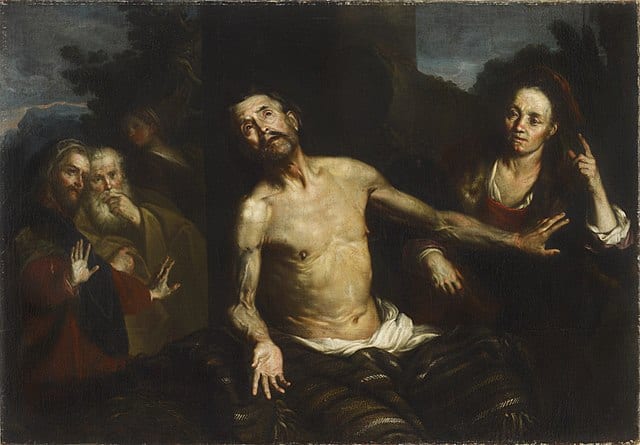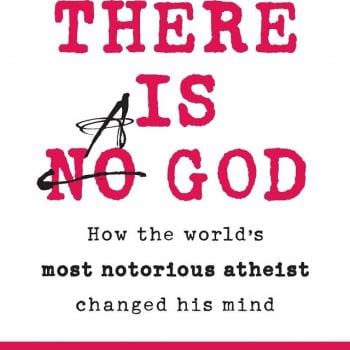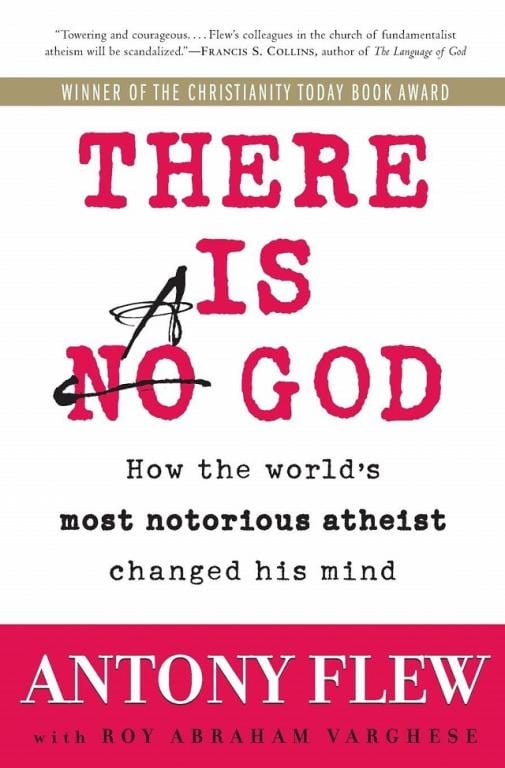Reply to Timothy Flanders

Timothy Flanders, who calls himself a traditionalist (I call him a radical Catholic reactionary), is a nice guy with whom I have engaged in pleasant and friendly dialogue four times (one / two / three / four). His latest article, “Are Catholics Bound to Assent to Vatican II?” (7-30-20) was published at One Vader Five (aka One Peter Five) This is my reply. His words below will be in blue.
*****
I’ve defended Vatican II itself, in the course of my apologetics, at least 25 times; additionally, a dozen more times, in specifically addressing the many particular criticisms of Paolo Pasqualucci. I’ve also explained and defended the general notion of conciliar and Church infallibility at least 27 times, and explored the analogy of the Jerusalem Council ten times. That’s about 75 separate treatments of the topic (these all being found on my Church index page on my blog). And this doesn’t even include the related material from my 50 books (one of them devoted to Church and papal infallibility).
Thus I need not address these preliminary issues of the sublime authority of ecumenical councils (i.e., ratified by popes), to the extent that they form part of his article, nor the post hoc ergo propter hoc (Latin: “after this, therefore because of this”) fallacy that is rampant among reactionaries and also many legitimate traditionalists. I already have, many times.
Timothy (whom I consider a friendly acquaintance) has been dialoguing with me since July 2019. The last one was dated 2-25-20. It was my reply. I’ve been waiting almost six months, then, for Timothy’s counter-reply. He says he is very busy with his work, which is fine, and I accept the explanation. I’m simply noting for the record that my last reply has not yet been responded to. This current article is not that, since my article was far more detailed and varied in content than what he is addressing here.
I thank Timothy very much for his gentlemanly charity at the beginning of this article. It’s also true (to the converse) that very few reactionaries extend even rudimentary charity and the benefit of the doubt to us orthodox Catholics who have honest differences with them. This lack of charity is seen in the combox below already (I comment eleven days after the article was published). Just in “Random Anonymous” ‘ comment alone, readers “learn” that I am supposedly “deranged” and “jealous” and “irrelevant” and am a “hyper papalist.” My “judgment is unsound” and “viewpoints not worth airing” and I’m similar to Japanese soldiers fighting on remote islands decades after 1945.
I was also shocked (well, just a little bit) to read that the same commenter thinks the Catholic Church is “increasingly indefensible.” That is — at a minimum — merely a Protestant or Orthodox outlook, and is certainly not traditional Catholicism, and knows nothing of what “indefectibility” means or requires or entails.
Yet I am the one who is supposedly “anti-traditionalist” (I am not at all; I am anti-reactionary)? In another comment, safely anonymous Random Anonymous gets into juvenile generational bias and goes after Baby Boomers (of whom I am one). Back in 1968 when we heard talk of the “generation gap” it was said that we should “trust no one over 30.” Apparently now the magic number is 45 or over (although the Boomers go back to about 1963, which would be 57) . Some things never change. Truth remains truth, no matter who states it. Such mindless insults are a classic instance of what C. S. Lewis called “chronological snobbery.”
But I digress. I’d like to specifically tackle the analogy that Timothy submits: that Vatican II is a “failed” council like Lateran V (1512-1517) allegedly was. I love analogies (that also comes from Newman), but I think this one fails, and I shall proceed to explain why I think so.
Timothy cites Cardinal Ratzinger (later, Pope Benedict XVI), from a L’Osservatore Romano article, dated 24 December 1984:
Certainly, the results [of Vatican II] seem cruelly opposed to the expectations of everyone, beginning with those of Pope John XXIII and then of Paul VI: expected was a new Catholic unity and instead we have been exposed to dissension which — to use the words of Paul VI — seems to have gone from self-criticism to self-destruction. Expected was a new enthusiasm, and many wound up discouraged and bored. Expected was a great step forward, and instead we find ourselves faced with a progressive process of decadence which has developed for the most part precisely under the sign of a calling back to the Council, and has therefore contributed to discrediting for many. The net result therefore seems negative. I am repeating here what I said ten years after the conclusion of the work: it is incontrovertible that this period has definitely been unfavorable for the Catholic Church.
The quotation leaves the impression: “Vatican II bad!” / “Vatican II caused every evil known to man in the last fifty years!” But Timothy knows full well that Pope Benedict XVI was and is a big champion of the council, and doesn’t think it itself caused all of the bad things we observe today. Nor are “expectations” of people the equivalent of the teachings contained in the official documents. People expect and hope for all kinds of things.
The traditionalists and reactionaries hoped for a host of things that Pope Benedict (their big darling) would do, with which they agreed. But he didn’t do all of them. And what he did do, that they liked (such as extend and validate the availability of the Tridentine Mass) — which, by the way, I fully favored before he addressed it in 2007 — , didn’t go far enough for them, so that they basically are now bitterly disenchanted with him (especially after his resignation). Expressions of such crushed, disillusioned hope abound in reactionary circles.
Such comments above have to be balanced with others, lest they be misunderstood. As pope, he stated in his Christmas Greetings to the Roman Curia (12-22-05):
The question arises: Why has the implementation of the Council, in large parts of the Church, thus far been so difficult?
Well, it all depends on the correct interpretation of the Council or – as we would say today – on its proper hermeneutics, the correct key to its interpretation and application. The problems in its implementation arose from the fact that two contrary hermeneutics came face to face and quarrelled with each other. One caused confusion, the other, silently but more and more visibly, bore and is bearing fruit.
On the one hand, there is an interpretation that I would call “a hermeneutic of discontinuity and rupture”; it has frequently availed itself of the sympathies of the mass media, and also one trend of modern theology. On the other, there is the “hermeneutic of reform”, of renewal in the continuity of the one subject-Church which the Lord has given to us. She is a subject which increases in time and develops, yet always remaining the same, the one subject of the journeying People of God.
The hermeneutic of discontinuity risks ending in a split between the pre-conciliar Church and the post-conciliar Church. It asserts that the texts of the Council as such do not yet express the true spirit of the Council. It claims that they are the result of compromises in which, to reach unanimity, it was found necessary to keep and reconfirm many old things that are now pointless. However, the true spirit of the Council is not to be found in these compromises but instead in the impulses toward the new that are contained in the texts.
These innovations alone were supposed to represent the true spirit of the Council, and starting from and in conformity with them, it would be possible to move ahead. Precisely because the texts would only imperfectly reflect the true spirit of the Council and its newness, it would be necessary to go courageously beyond the texts and make room for the newness in which the Council’s deepest intention would be expressed, even if it were still vague.
In a word: it would be necessary not to follow the texts of the Council but its spirit. In this way, obviously, a vast margin was left open for the question on how this spirit should subsequently be defined and room was consequently made for every whim. . . .
Forty years after the Council, we can show that the positive is far greater and livelier than it appeared to be in the turbulent years around 1968. Today, we see that although the good seed developed slowly, it is nonetheless growing; and our deep gratitude for the work done by the Council is likewise growing. . . .
Those who expected that with this fundamental “yes” to the modern era all tensions would be dispelled and that the “openness towards the world” accordingly achieved would transform everything into pure harmony, had underestimated the inner tensions as well as the contradictions inherent in the modern epoch.
They had underestimated the perilous frailty of human nature which has been a threat to human progress in all the periods of history and in every historical constellation. These dangers, with the new possibilities and new power of man over matter and over himself, did not disappear but instead acquired new dimensions: a look at the history of the present day shows this clearly.
Timothy, to his credit, cites this very address and concedes that Pope Benedict would not reject Vatican II at all (as he and reactionaries, generally speaking, seek to do):
But if Ratzinger could concede in the ’80s that the “net result” of Vatican II was negative, he would hasten to assert (as he would in 2005) that this is not due to the Council ontologically.
Fair and correct, but of course readers who already agree with him will remember the long “negative” citation and probably not even bother to read (or even glance at) what is in the link. And so the impression desired is left. I think that’s a bit unfair. But (as he told me) he had a 2000-word limit, so that is at least some excuse for the too one-sided presentation. I understand that (as one who regularly writes 1000-word articles for National Catholic Register). But he could have cited both statements with roughly equal numbers of words. In any event, I have no word limit on this blog, and so have the opportunity to “balance the record.”
Ratzinger seems to be speaking of the Council from a historical perspective. I read him as saying (here in 1984) that the historical effect of the Council has been negative. Thus, a historical assertion takes into account the machinations of human sin that failed to bring about what the Council intended.
Well, he was simply saying that the ideals expected by the council fathers did not work out in reality, which is how the human condition usually (well, almost always) amounts to. Catholicism — following the Holy Scripture — represents the highest ideals known to man. It doesn’t necessarily (as a purely logical matter) follow that Vatican II was any sort of cause of the disappointing reality of post-60s decadent, perverted western culture.
It expressed truths that the secular culture simply rejected out of hand. Vatican II, after all, clearly didn’t cause or champion the sexual revolution (which is the leading force and cutting edge of ever-encroaching secularism), that really got off the ground shortly after its close. It directly opposed it, as I will document below.
Pope St. Paul VI heroically resisted the elephant in the room: the sexual revolution, in his 1968 encyclical Humanae Vitae, which reasserted the traditional Catholic ban on contraception as immoral. Was the sexual revolution caused by the text of Humanae Vitae? The very thought is ridiculous. Yet this is how reactionaries “reason” when it comes to Vatican II. They become conspiratorial and utterly irrational: juxtaposing and converging ideas and events that have nothing whatever to do with each other.
Did Vatican I “cause” the Old Catholics, who rejected its definition of papal infallibility, to leave the Church? No. There are always folks who leave religious groups when developments happen that they personally don’t like. They place their private judgment above the Mind of the Church and split, having adopted the Protestant conception of authority.
Did the Council of Nicaea in 325, which carefully defined the Holy Trinity, “cause” the outbreak of Arianism, which nevertheless persisted for several more centuries, followed by Monothelitism: another Christological heresy? Of course not. But if we reasoned as reactionaries do as regards Vatican II, we would have to say that it did, since what “followed” was a truly dreadful period of Church history.
Even Trent (perhaps reactionaries’ favorite council) did not stop Protestantism at all. The Protestants obliviously went their merry way. Trent made great internal Church reforms and offered wonderful clarity about Catholic doctrine and dogma, but had little or no bearing on the continued existence and vitality of the various Protestant sects. As soon as it came out, John Calvin and the Lutheran theologian Martin Chemnitz issued attempted refutations of it (I have refuted parts of both efforts).
So do we say that Trent also “failed” and should be discarded, because it had next to no impact on lessening the big “problem” of that day: Protestant schism and heresy (where it existed)? No. It cannot be expected to have done so. Even the Bible: God’s inspired revelation, is rejected by many millions of people, and its message distorted beyond recognition in many ways by the many anti-trinitarian cults and weird sects. It’s not because it doesn’t offer pure truth.
Here we may see a parallel with Lateran V, which addressed in 1517 the question of indulgences and corruption that spring, but not enough to prevent the Protestant revolt that autumn, necessitating a whole new council. From the historical perspective, we can confidently say Lateran V was a failure. This is because its decrees were not sufficient to address the heretical explosion of Protestant fervor,
I think this is filled with fallacies and failed analogies. The Wikipedia article on this council never even mentions the word “indulgences” as anything the council dealt with. Nor does the Catholic Encyclopedia article devoted to it. I ran across a more in-depth account of Lateran V, and it at least has the word three times, but only matter-of-factly, not in the sense that there is a big need to reform indulgences (with none even occurring in the 1517 session). It simply wasn’t one of the aims of the council.
Session 12 in 1517 occurred in March of that year. As most students of Christian history know, Martin Luther didn’t post his 95 Theses until 31 October 1517. It simply wasn’t the raging issue seven months earlier, that it was to become. So we can hardly fault Lateran V for that, since councils and apologists always deal with existing controversies, and clarify in light of them. Hence (to mention but one famous example), St. Augustine dealt with the Pelagians and Donatists because they were prevalent in his time (etc.).
Moreover, it’s inaccurate to characterize the Protestant Revolt as having been caused or driven primarily by the indulgences controversy that Luther focused on in his Theses. I’ve repeatedly dealt with this stubborn myth, and particularly with how the early Protestants were no more “pious” or “righteous” as a whole than Catholics were (even according to Luther’s own frank and disgusted reports). Some historians of the so-called “Reformation” go so far to say that it was even primarily a political movement. For example:
Medieval Catholic Corruption: Main Cause of Protestant Revolt? [6-2-03; revised slightly: 1-20-04; 10-10-17]
Luther Film (2003): Detailed Catholic Critique [10-28-03; abridged with revised links on 3-6-17]
50 Ways In Which Luther Had Departed From Catholic Orthodoxy by 1520 (and Why He Was Excommunicated) [3-29-06]
Causes of the Protestant “Reformation” (vs. a Lutheran Pastor) [11-20-07; abridged somewhat on 10-23-17]
Martin Luther: “Our manner of life is as evil as is that of the papists” [12-29-07]
Luther on Early Lutherans: “Ingrates” Who Deserve God’s “Wrath” [2-28-10]
Luther on Early Lutheran Degeneracy & Bad Witness [3-2-10]
Luther: Monks & Priests More “Earnest” Than Lutherans [11-10-11]
and its bishops lacked the courage to implement the good decrees it did contain.
Of course, this is not the fault of the council’s documents, but rather, a lack of wisdom in the policies and actions of bishops. So it’s irrelevant as to being any sort of analogous argument against Vatican II, in which case our beloved liberal dissidents sought to implement the heretical so-called “spirit” of Vatican II.
It could be reasonably asserted that Lateran V could not have predicted the chaos that would ensure. To a degree, this is true, but on the other hand, a storm was indeed seen on the horizon and was publicly warned about at the council.
Okay; nor could those who participated in Vatican II be able to imagine in their wildest dreams a society (in just ten years) where childkilling would be legalized in virtually every “developed” country (even in fairly morally traditional America), or the massive fornication, contraception (the Birth Control Pill at the end of the council being then only five years old), illegitimacy, broken homes, divorce, pornography, substance abuse, and many other social ills that would arise; or, for that matter, same-sex “marriage” supported by the Supreme Court of the United States fifty years later. These things were unimaginable.
Thus, considered from a historical perspective, we can say that Lateran V was a failure for various reasons (from the “premature” end of the Council itself to the enacting of its “salutary decrees”) to the extent that no one remembers Lateran V, and everyone remembers the successful council instead, Trent.
Apart from the naive and overly simplistic logic already noted, this is unfair to the Lateran V council. There are other views of it. For example, I fond an article entitled, “The Last Two Councils of the Catholic Reformation: The Influence of Lateran V on Trent,” by Nelson H. Minnich, a Catholic historian who later wrote the book, The Decrees of the Fifth Lateran Council (New York: Routledge, 2016) . It appeared in the volume, Early Modern Catholicism: Essays in Honour of John W. O’Malley, S.J. (Univ. of Toronto Press, 2001). Here are a few excerpts (many similar and more detailed ones appear in the article):
[It] affirmed that the pope has authority over all councils and only he can convoke, transfer, and close a council. Thus Lateran V effectively put an end to the threat of conciliarism. (p. 4)
Even if the decrees of Lateran V were not widely received and enforced, repeated references to them were made by those advocating reform. (p. 5)
The fathers of Trent . . . had access to its printed acta and carefully scrutinized them for procedural precedents and decrees supporting their vision of church reform. The procedures followed at Lateran V were often cited to justify actions taken at Trent. (p. 6)
Lateran V achieved precisely what it can reasonably be expected to have achieved: reform of Church practice and development of Church doctrine, just as every other ecumenical council, including Vatican II has done.
We may observe as well that just like at Lateran V, multiple voices were raised in warning about the effects of Vatican II and the gravity of the storm of sexual revolution, most of all Our Lady herself at Fatima, but these warnings were ignored or literally silenced and mocked by the majority faction at Vatican II (led in part by Ratzinger). Therefore, it is not unreasonable to assert on the historical level that, similar to Lateran V, the Second Vatican Council failed to “read the signs of the times” and thought the world was on the dawn of a new age of Christianity, instead of the reality of a new darkness of pornographic filth, mass murder of unborn children, and a worldwide clerical revolt in favor of contraception.
Vatican II dealt with these issues in Gaudium et Spes, Part Two, Chapter 1: ‘The Dignity of Marriage and the Family”: sections 47-52: taking up some nine pages in the Flannery edition. That’s not nothing. It spoke truth and was not heeded, just as the papal encyclical Casti Connubii did in 1930 (responding to the Anglican caving on contraception in the same year: the first Christian body ever to do so) and was largely ignored, and just as Humanae Vitae did three years later and was mocked and massively dissented against. “Heresy begins below the belt.”
The fault doesn’t lie in the documents, but in the rebellion of the rebels. If Vatican II is to be blamed, then so must these other two documents be blamed as somehow “negligent.” It’s a bum rap all around. If we want to play the “analogy game” there we are. Here are excerpts from this portion of Gaudium (with my bolding for emphasis):
47. The well-being of the individual person and of human and Christian society is intimately linked with the healthy condition of that community produced by marriage and family. Hence Christians and all men who hold this community in high esteem sincerely rejoice in the various ways by which men today find help in fostering this community of love and perfecting its life, and by which parents are assisted in their lofty calling. Those who rejoice in such aids look for additional benefits from them and labour to bring them about.
Yet the excellence of this institution is not everywhere reflected with equal brilliance, since polygamy, the plague of divorce, so-called free love and other disfigurements have an obscuring effect. In addition, married love is too often profaned by excessive self-love, the worship of pleasure and illicit practices against human generation.
***
48. . . . As a mutual gift of two persons, this intimate union and the good of the children impose total fidelity on the spouses and argue for an unbreakable oneness between them. . . .
***
49. . . . Such love, merging the human with the divine, leads the spouses to a free and mutual gift of themselves, a gift providing itself by gentle affection and by deed; such love pervades the whole of their lives: indeed by its busy generosity it grows better and grows greater. Therefore it far excels mere erotic inclination, which, selfishly pursued, soon enough fades wretchedly away. . . .
***
50. Marriage and conjugal love are by their nature ordained toward the begetting and educating of children. Children are really the supreme gift of marriage and contribute very substantially to the welfare of their parents. The God Himself Who said, “it is not good for man to be alone” (Gen. 2:18) and “Who made man from the beginning male and female” (Matt. 19:4), wishing to share with man a certain special participation in His own creative work, blessed male and female, saying: “Increase and multiply” (Gen. 1:28). Hence, while not making the other purposes of matrimony of less account, the true practice of conjugal love, and the whole meaning of the family life which results from it, have this aim: that the couple be ready with stout hearts to cooperate with the love of the Creator and the Saviour, Who through them will enlarge and enrich His own family day by day. . . .
***
51. . . . For God, the Lord of life, has conferred on men the surpassing ministry of safeguarding life in a manner which is worthy of man. Therefore from the moment of its conception life must be guarded with the greatest care while abortion and infanticide are unspeakable crimes. The sexual characteristics of man and the human faculty of reproduction wonderfully exceed the dispositions of lower forms of life. Hence the acts themselves which are proper to conjugal love and which are exercised in accord with genuine human dignity must be honoured with great reverence.
Hence when there is question of harmonizing conjugal love with the responsible transmission of life, the moral aspects of any procedure does not depend solely on sincere intentions or on an evaluation of motives, but must be determined by objective standards. These, based on the nature of the human person and his acts, preserve the full sense of mutual self-giving and human procreation in the context of true love. Such a goal cannot be achieved unless the virtue of conjugal chastity is sincerely practiced. Relying on these principles, sons of the Church may not undertake methods of birth control which are found blameworthy by the teaching authority of the Church in its unfolding of the divine law.
[Footnote: 14. Cf. Pius XI, encyclical letter Casti Connubii: AAS 22 ( 1930): Denz- Schoen. 3716-3718; Pius XII, Allocutio Conventui Unionis Italicae inter Obstetrices, Oct. 29, 1951: AAS 43 (1951), PP. 835-854, Paul VI, address to a group of cardinals, June 23 1964: AAS 56 (1964), PP. 581-589. Certain questions which need further and more careful investigation have been handed over, at the command of the Supreme Pontiff, to a commission for the study of population, family, and births, in order that, after it fulfills its function, the Supreme Pontiff may pass judgment. With the doctrine of the magisterium in this state, this holy synod does not intend to propose immediately concrete solutions.]
I fail to see how this ignores the key aspects of the sexual revolution. It mentions and condemns all of them. There is nothing wrong in this analysis at all. It’s beautiful and profound. Pope St. Paul VI expanded upon it three years later, just as the footnote above foresaw. And Pope St. John Paul II blessed the Church and Catholic theology with his magnificent teachings on the theology of the body, which is no less than an extraordinary and exciting development in moral theology in our own time.
Rather than rejoice in those gifts to the Church, reactionaries would rather spend their energies (I have observed this myself, again and again) objecting to the canonization of both men (and Taylor Marshall even outrageously suggests in his pathetic book that Pope St. Paul VI had an ongoing homosexual lover). Timothy praises the “academic rigor of the traditionalist [i.e., reactionary] scholars such as De Mattei, Romano, and Ferrara” in his footnote #1. The first and last of these fought against the canonization of the three recent saint-popes:
Pope Bergoglio’s rapid-fire canonizations of John Paul II and John XXIII have understandably contributed to growing concerns among the faithful about the reliability of the “saint factory” put into operation during the reign of John Paul II. . . .
But now the seemingly imminent canonization of Paul VI, following approval of two purported miracles which, based on the information published, seem decidedly less than miraculous (to be discussed in Part II of this series), has provoked widespread incredulity about the canonization process itself, going even beyond the skepticism that greeted the canonizations of John XXIII and John Paul II.
. . . concerns of Roberto de Mattei over Pope Bergoglio’s canonization of John Paul II and John XXIII . . . (Chris Ferrara, “The Canonization Crisis, Part 1”: The Remnant, 2-24-18)
See also, “True and False Saints in the Church” (10-19-18), by Roberto de Mattei, who cites Ferrara.
God help us all! Like the Pharisees of old, reactionaries can’t see what is right in front of them: the “weightier matters,” as Jesus called them.
Most of the rest of the article was simply reiterations of the basic theme, which I believe I have shown to be profoundly fallacious and sadly mistaken.
***
Photo credit: Anne Worner: “BoogeyMan” (12-6-14) [Flickr / CC BY-SA 2.0 license]
***




